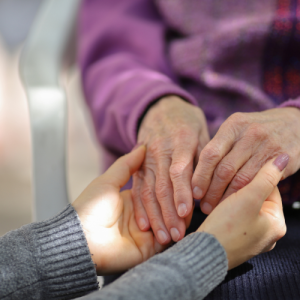Mental Health Tips for Caregivers
According to the Mayo Clinic, one out of every three adults is a caregiver for someone they love. Caregivers assist others with daily needs, such as an ill spouse/partner, someone with a disability, children, or an aging friend or relative. Some people even have professions that require caregiving.
While caregiving can be a rewarding experience for building relationships and showing love, it can also be incredibly stressful and lead to neglecting one’s own needs. It’s crucial for caregivers to take care of themselves while they care for others.
to take care of themselves while they care for others.
Caregivers also need support and assistance. Signs of burnout may include:
- Feeling overwhelmed
- Constant worry
- Feeling tired or not sleeping enough
- Loss of interest in activities
- Feeling sad and depressed
It’s important to take inventory of how you are feeling and reach out for support or help if you start to become overwhelmed or need a break. There are many ways caregivers can manage stress. Use the following tips:
- Ask for and accept help from others
- Make a list of ways in which those around you can help you (bring a meal, sit with your loved one so you can have a break, or take them to an appointment for you)
- Set boundaries and say “no” to things that drain your energy like hosting holidays or special events
- Stay connected with others
- Focus on what you can do
- Set goals that are attainable
- Follow a routine that incorporates your goals
Stay connected to others during this journey and ask for help. Remember, if you neglect your own well-being, you won’t be able to effectively care for others.
If you are in need of crisis support know it is available 24 hours a day, 7 days a week by dialing 1-800-468-4357 (1-800-GOT-HELP) or by dialing the National Suicide Prevention Lifeline, 988.
What do you do to balance your mental health? Share your story with us by completing this survey.